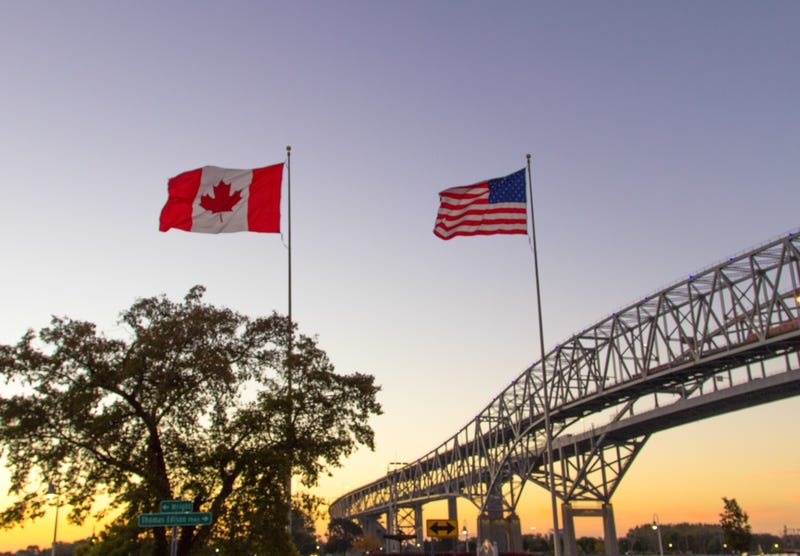
Buffalo, N.Y. (WBEN) - With new property taxes in Canada imposing tax on non-Canadian homeowners with residences in their country, varying rules at the border in regards to vaccine requirements and other rule changes that have been in place post-9/11, are we seeing a further divide between the U.S. and Canada?
Canada passed legislation, applying a 1% tax on residential properties of non-Canadians who hold residences in their country. In addition, there is now a two-year waiting time for non-Canadians who want to purchase property. As of Jan. 1, 2023, non-Candians will no longer be able to purchase residential property for two years.

Niagara Falls Mayor on the U.S. side, Rob Restaino, says these legislative acts impose challenges on families who have relatives on both the U.S. and Canadian side.
"Our communities are intertwined," said Mayor Restaino. "Niagara Falls, New York, Niagara Falls, Ontario. And so many of the families go back and forth and have summer homes in places that they enjoy in the Niagara region, in Ontario. This is just an unfortunate imposition on those people being able to do that. Some of the folks actually have family on both sides of the river, and they use the summer locations, to vacation with family in Canada.
We simply see it as an unfortunate impediment to what was otherwise a very friendly relationship between the two areas. And we have a lot of Canadian folks who who have summer residents is down in their southern chairs. So it's just unfortunate."
Mayor of Niagara Falls on the Canadian side, Jim Diodati concurs. "A lot of things start out as a good idea with unintended negative outcomes. And I'd say this is one of them."
A fracture may not be the right word to describe some of these difficult obstacles, specifically between us Western New Yorkers and the Canadian border, but it's unquestionably problematic.
"In terms of us being a cohesive unit along the river, I think we need to take a look at all of those things, [like] border restrictions," said Mayor Restaino. "Border mayors on both sides of the river, have been directly complaining about these impositions because we're on the front line, we're the ones that are suffering the most as a result of those inconsistencies. That's an issue, but then when these other things start creeping in, again, as they say, it just creates a strain, the relationship that we've all enjoyed over the course of many, many, many years."
Congressman Brian Higgins will continue his efforts to stop this legislation as part of his larger border efforts.
"We want to continue that relationship, it accrues to the benefit of both Canadians and Americans, but this is Diplomacy 101," said Congressman Higgins. "We need to, in a very persistent way, make sure that the Canadian federal government understands that these kinds of things are a race to the bottom. For everything they do, we can follow. We don't want to do that. We want to get back to the larger objective. We want two countries that share the same values relative to freedom and democracy."
Mayor Diodati says that relations with U.S. and Canada are fine. However, he believes that these specific obstacles are going to require the work of more political intervention.
"You always come back to the table, you have further dialogue, and you try to make the right decision. And I think in this case, it's going to rely on some political intervention. Leaders like Congressman Higgins and others coming together so that we can discuss this and how we can change it and amend it because I happen to feel the same way."

